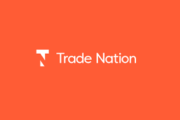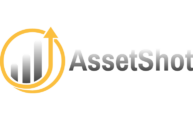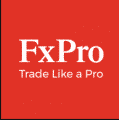Find a forex broker that accepts African traders in our table below. When it comes to forex trading, Africa offers traders plenty of opportunities. However, there are a few things to consider when choosing a forex broker to trade with.










Risk Warning: Trading financial products on margin carries a high degree of risk and is not suitable for all investors. Losses can exceed the initial investment. Please ensure you fully understand the risks and take appropriate care to manage your risk.




CFDs are complex instruments and come with a high risk of losing money rapidly due to leverage. 71% of retail investor accounts lose money when trading CFDs with this provider. You should consider whether you understand how CFDs work and whether you can afford to take the high risk of losing your money.




Spread bets and CFDs are complex instruments and come with a high risk of losing money rapidly due to leverage. 78% of retail investor accounts lose money when trading spread bets and CFDs with this provider. You should consider whether you understand how spread bets and CFDs work, and whether you can afford to take the high risk of losing your money.








Spread bets and CFDs are complex instruments and come with a high risk of losing money rapidly due to leverage. UK: 68.61%, EU: 77.99% of retail investor accounts lose money when spread betting or trading CFDs with OvalX. You should consider whether you understand how spread bets or CFDs work and whether you can afford to take the high risk of losing your money.






























CFDs are complex instruments and come with a high risk of losing money rapidly due to leverage. 69% of retail investor accounts lose money when trading CFDs with this provider. You should consider whether you understand how CFDs work and whether you can afford to take the high risk of losing your money.









Trading forex is increasingly common in Africa. There is an estimated 1.3 million forex traders across the continent, with almost 400,000 of those based in South Africa and Nigeria, Africa’s two largest economies. Other African countries that have high numbers of traders in forex, CFDs and crypto include Kenya, Egypt, Tanzania, Namibia and Angola.
As a continent with 54 different countries, the ease and accessibility of forex trading in Africa will depend on where you are, but there are plenty of brokers, both local and international, that offer forex trading to investors based in Africa. Always look for a broker that offers the features you need when it comes to forex trading, such as an intuitive trading platform, a reasonable minimum deposit, low fees, good customer service and easy mobile trading.
Forex brokers in Africa may work on a commission-free model, taking their profits from the spreads, or they may charge a commission in the form of a fee per trade. Check all the fees and costs involved before signing up with any particular broker. Find out about things such as inactivity fees and withdrawal charges. African forex traders might prefer a local broker that offers accounts in their own currency. Also, look at the payment methods that the broker offers, and make sure that they are available in your region.
Countries such as South Africa and Namibia have strict forex trading rules and regulating bodies, such as the FSCA in South Africa. However, many African countries lack a national regulating body for forex trading.
When it comes to finding a regulated forex broker, Africa has plenty of choices to offer. However, many African forex traders use international brokers that are regulated in their own countries through bodies such as the FSCA, FCA and CySEC. African traders should be aware, though, that international regulation may not guarantee them the same protection as it does citizens of the country where the regulator is based.
African forex brokers tend to offer a range of trading platforms, including the world-leading MT4 and MT5. Remember, the best forex trading platform for you is the one you are comfortable with and find easy to use. Consider using a demo account to get a feel for how a trading platform works.
African forex traders will want to make sure that their broker has reliable and responsive customer service, preferably with an office in their own country, with a local phone line. This will not be the case with many international brokers, so check that you can easily access customer support, through the available channels, before signing up. You’ll also want to make sure that customer support is available in a language you feel comfortable with.
Yes, you can trade forex in many countries across Africa, but the level of regulation and client protection offered does vary a lot from one country to another.
It has been estimated that there are around 1.3 million forex traders in Africa, with the majority of retail forex traders based in South Africa, followed by Nigeria.